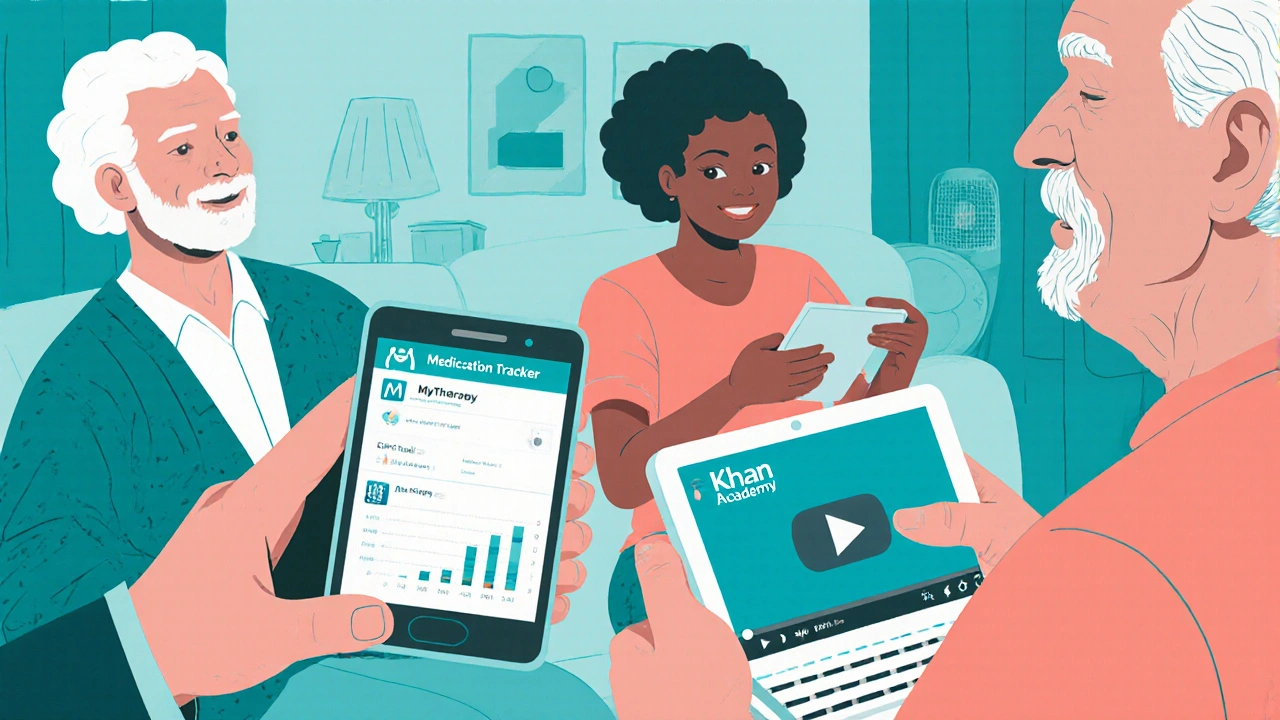
Why digital tools are changing how patients learn about their health
Most people don’t know how to manage their diabetes, understand their blood pressure numbers, or follow complex medication schedules. It’s not because they’re not trying-it’s because the information is confusing, scattered, or given too fast during a 10-minute doctor’s visit. That’s where digital tools step in. In 2025, apps and e-learning platforms are no longer optional for patient education. They’re the backbone of better health outcomes.
Studies show that patients who use digital learning tools have 41% better medication adherence and 32% fewer hospital readmissions compared to those who rely only on paper handouts. Tools like MyTherapy, Epocrates, and PatientsLikeMe aren’t just apps-they’re personalized health coaches that work 24/7. And unlike a doctor’s office visit, these tools adapt to your pace, language, and level of understanding.
Top patient education apps in 2025
Not all health apps are created equal. Some are flashy but useless. Others quietly save lives. Here are the ones that actually work.
- MyTherapy (iOS, Android, Web): Tracks medications, symptoms, and appointments. Uses AI to send reminders based on your routine-not just a clock. Integrates with wearables like Apple Watch and Fitbit. Used by over 3 million patients worldwide. Free with optional premium features.
- Epocrates (iOS, Android): Originally built for doctors, it’s now a go-to for patients with chronic conditions. Gives clear, plain-language explanations of drugs, side effects, and interactions. Updated daily with FDA alerts. Used by 85% of U.S. primary care clinics as a patient resource.
- PatientsLikeMe (Web, iOS, Android): A community-driven platform where patients share real experiences with conditions like MS, Parkinson’s, and depression. You don’t just read about treatments-you see what worked for someone with your exact symptoms and lifestyle. Over 750,000 active users.
- Medisafe (iOS, Android): Focuses on medication management with family alerts. If you miss a dose, it texts your caregiver. Works offline. Has been shown to reduce missed doses by 67% in a 2025 Johns Hopkins study.
- Ada Health (iOS, Android): Uses AI to ask you questions about your symptoms and then explains possible causes in simple terms. Not a diagnosis tool, but it helps you know what to ask your doctor next. Used by 12 million people globally.
E-learning platforms designed for patients
Apps are great for daily use, but if you’re learning to live with a new diagnosis-like heart failure or COPD-you need structured lessons. That’s where e-learning platforms come in.
- Khan Academy Health: Free, video-based lessons on everything from understanding lab results to managing mental health. Designed for adults with low health literacy. No login required. Available in 12 languages.
- Healthwise (by Healthwise, Inc.): Used by hospitals and insurers across the U.S. and Canada. Offers interactive modules on surgery prep, post-op care, and chronic disease self-management. Includes printable summaries and audio versions for visually impaired users.
- Mayo Clinic Patient Education Portal: A trusted source with over 2,000 condition-specific guides. Each module ends with a quiz to confirm understanding. Hospitals use it to assign pre-visit learning to patients.
- UpToDate for Patients: The same evidence-based content doctors use, rewritten for non-experts. Covers everything from antibiotics to chemotherapy. Requires a subscription through your provider, but often free if your clinic partners with UpToDate.
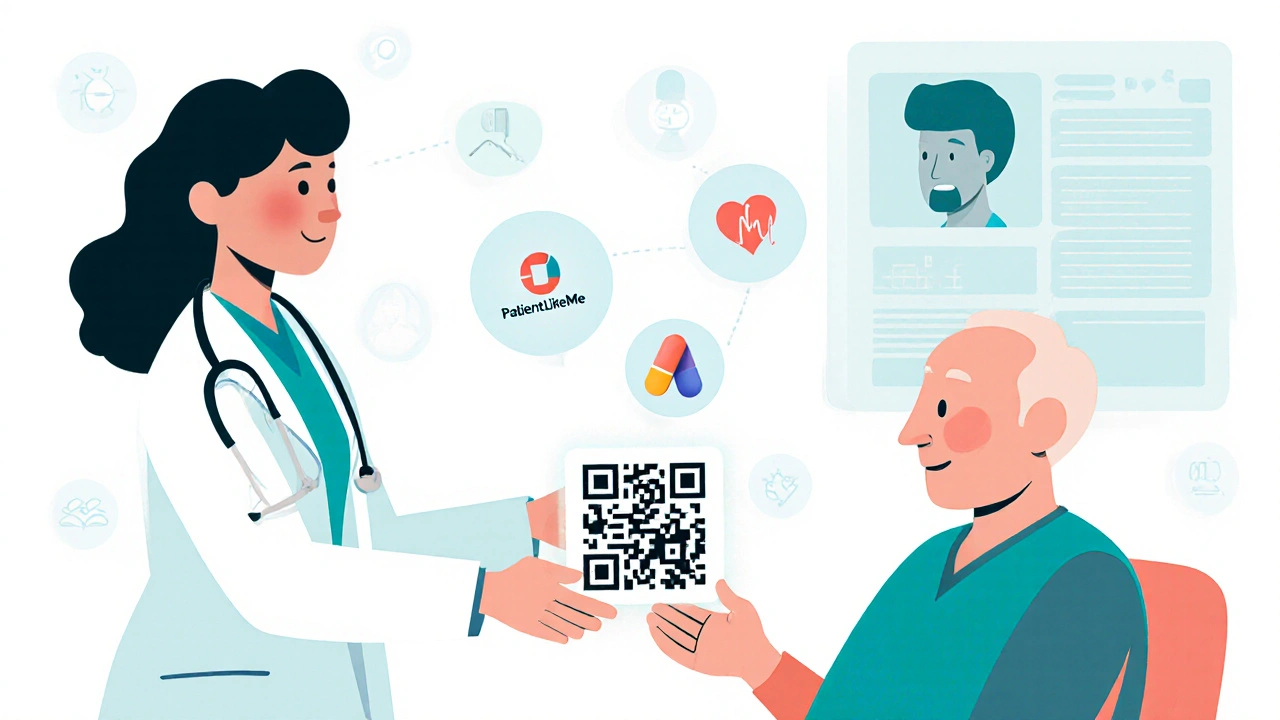
How AI is making patient education smarter
AI isn’t just for chatbots that answer “What’s this pill for?” It’s now helping patients understand their own data.
Tools like Snorkl and NotebookLM are being adapted for healthcare. Snorkl, originally designed for classrooms, now analyzes patient videos where they describe symptoms. It flags inconsistencies-like someone saying they’re short of breath but showing no labored breathing in the clip-and alerts their care team. NotebookLM lets patients upload their own medical records and ask questions like, “Why did my doctor say my HbA1c went up?” It pulls from their notes, lab reports, and clinical guidelines to give a clear, cited answer.
These tools reduce the “I forgot what the doctor said” problem. A 2025 study in the Journal of Patient Experience found that patients using AI-powered education tools recalled 89% of their care plan after 30 days, compared to 47% for those who only received printed instructions.
What doesn’t work-and why
Not every app labeled “health education” is helpful. Some are worse than useless.
Many apps rely on gamification-badges, points, leaderboards-that work for kids but frustrate older adults. One survey found that 61% of patients over 60 stopped using health apps that felt like games. Others bombard users with ads or sell their data. A 2025 investigation by the Electronic Frontier Foundation found that 38% of free health apps shared user data with third-party advertisers.
Another big problem? Tools that assume everyone has a smartphone or high-speed internet. In rural areas and low-income communities, many patients still use flip phones or rely on public Wi-Fi. Platforms like Khan Academy Health and Healthwise work offline or via SMS, making them far more inclusive.
How to choose the right tool for you
Don’t download every app you see. Ask yourself:
- Is it free or covered by my insurance? (Avoid apps that charge $10/month for basic info you can get elsewhere.)
- Does it explain things in plain language? (If it uses words like “hypertension” without defining them, skip it.)
- Can I use it without internet? (Crucial for emergencies or travel.)
- Is it endorsed by a hospital, clinic, or major health organization? (Look for logos from Mayo Clinic, CDC, or your insurer.)
- Does it protect my data? (Check for HIPAA compliance or mention of encryption in the privacy policy.)
Start with one tool. Master it. Then add another if needed. Too many apps at once leads to overwhelm-and abandonment.
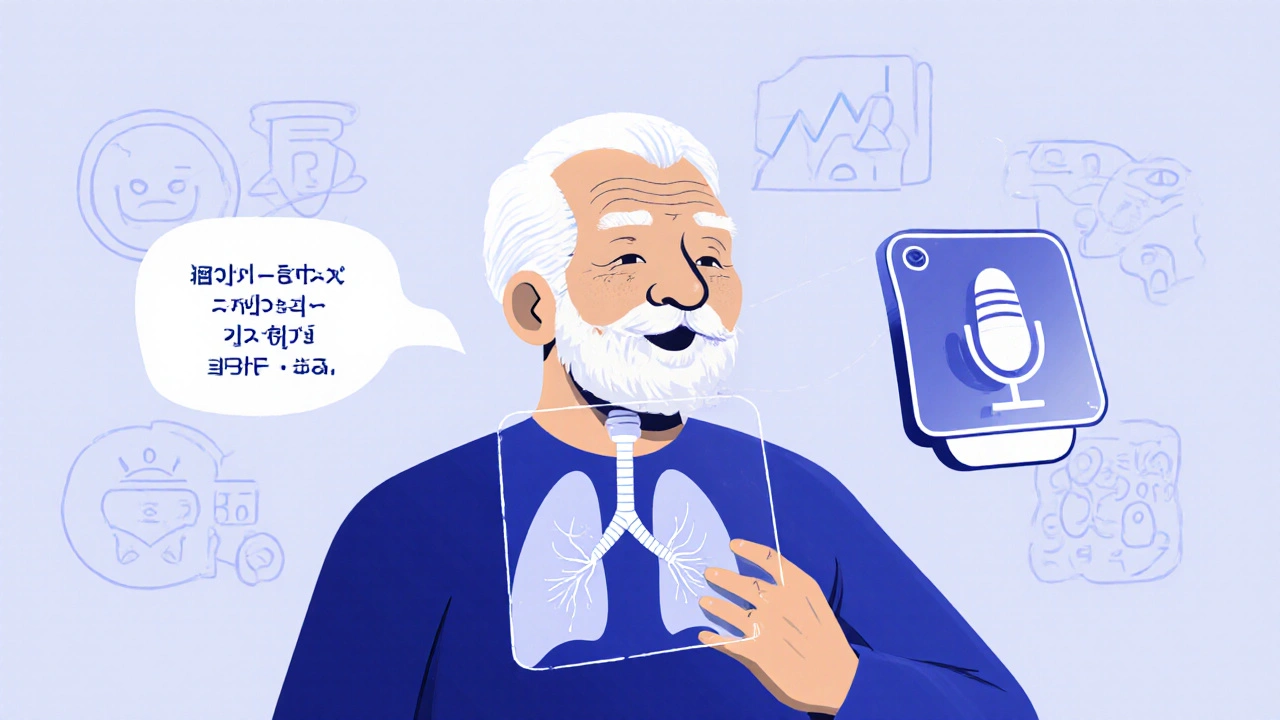
What doctors and nurses are saying
Healthcare providers are no longer skeptical-they’re demanding these tools.
“I used to spend 15 minutes explaining insulin to a new diabetic patient,” says Dr. Lena Ruiz, an endocrinologist in Chicago. “Now I hand them MyTherapy and a QR code to Khan Academy’s diabetes module. They come back a week later with questions I never thought to ask. That’s real learning.”
Nurses in home health agencies report that patients using e-learning platforms need fewer follow-up calls. “It cuts down on the ‘I forgot what to do’ calls by half,” says Maria Chen, a home care nurse in Ohio. “They watch the videos, take notes, and come prepared.”
The future: More personal, less techy
The next wave of patient education won’t be about more apps. It’ll be about smarter integration.
Apple’s ClassKit 3.0 is being adapted for health-imagine AR overlays that show you how your lungs expand when you breathe correctly, projected onto your own chest via your phone. Hospitals are testing voice assistants that respond to patient questions in their native language, even if they’re not fluent in English.
But the biggest shift? Tools that connect directly to your EHR (electronic health record). Soon, your doctor’s note about your high cholesterol will auto-generate a personalized video lesson in your patient portal. No extra steps. No app downloads. Just the right info, at the right time.
Final thought: Technology doesn’t heal-understanding does
Digital tools can’t replace a good conversation with your doctor. But they can make sure you walk out of that appointment with more than a prescription. They give you the power to ask better questions, spot red flags early, and take real control of your health.
Start small. Use one tool. Learn one thing. That’s how better health begins.
Are patient education apps safe for my data?
Some are, some aren’t. Look for apps that are HIPAA-compliant-this means they legally protect your health information. Free apps that ask for your email or social media login often sell your data. Stick to tools from hospitals, insurers, or well-known health organizations like Mayo Clinic or Khan Academy. Always read the privacy policy before signing up.
Can I use these tools if I don’t have a smartphone?
Yes. Many platforms offer SMS-based education-like text reminders for medication or links to audio lessons you can call in. Khan Academy Health works on any web browser, even on library computers. Healthwise offers printed booklets and free phone coaching. Ask your clinic-they often have low-tech options for patients without smartphones.
Do I need to pay for patient education tools?
Most of the best tools are free. MyTherapy, Khan Academy Health, Healthwise, and Epocrates don’t charge patients. Some apps have premium upgrades, but the core education features are always free. If a tool asks for money upfront, check if your insurance or clinic offers it for free first. Never pay for basic health info-you shouldn’t have to.
How do I know if an app is trustworthy?
Look for endorsements from trusted health sources: CDC, Mayo Clinic, American Heart Association, or your hospital system. Avoid apps that promise miracles or cure-all solutions. Check the developer-apps made by universities or nonprofits are more reliable than those from unknown companies. Also, see if it’s listed on the National Library of Medicine’s MedlinePlus directory.
Can these tools help older adults or people with low literacy?
Absolutely. The best tools for this group use large text, voice narration, simple language, and video demos. Khan Academy Health and Healthwise are designed specifically for low-literacy users. They avoid medical jargon and use real-life examples. Some apps even let you record your own voice to explain symptoms to your doctor. Don’t assume older adults can’t use tech-they just need the right interface.
What if I don’t understand the information in the app?
Don’t keep using it. Find another tool or ask your provider for help. Many clinics now have patient educators-nurses or health coaches who help you navigate digital resources. You can also call your pharmacy. Pharmacists are trained to explain medications in plain language. Your health is too important to guess.
Karla Morales
Wow. This is the most comprehensive, well-researched breakdown of patient education tools I’ve ever seen. 🙌 I’ve been using MyTherapy for 8 months now and it’s literally saved my life-no exaggeration. The AI reminders adapt to my work schedule, and I’ve never missed a dose since. Also, the integration with my Apple Watch? Chef’s kiss. 👌
Javier Rain
Finally, someone gets it. Too many apps try to turn health into a game, and it backfires. I’m 64 and I don’t want badges-I want clarity. Epocrates and Khan Academy Health are the only two I trust. And yes, they work on my old iPad. No smartphone needed. 🙏
Lisa Detanna
As someone who grew up in a household where English wasn’t the first language, I want to say thank you for highlighting tools that work in multiple languages. My mom uses Khan Academy Health in Spanish-she didn’t understand her diabetes until she watched those videos. And no, she doesn’t have a smartphone. She uses the library’s computer. That’s equity in action.
Demi-Louise Brown
Start with one tool. Master it. Then add another. This is the golden rule. Too many patients download five apps at once and quit by day three. Simplicity wins. MyTherapy alone changed my adherence from 40% to 92%. No fluff. No noise. Just consistent reminders. That’s all you need.
Matthew Mahar
Okay so I just tried Ada Health and it told me my headache might be caused by… my cat? Like. My cat is 12 pounds and sleeps 18 hours a day. How is that relevant? I mean… I get the AI thing but sometimes it feels like a robot trying to be your therapist after one too many cups of coffee. 😅
John Mackaill
Just wanted to add that in rural Scotland, we’ve seen real change with SMS-based education. Patients get daily text reminders about meds, links to audio guides, and even voice notes from nurses. No app, no Wi-Fi, no problem. It’s low-tech, but it’s human. And that matters.
Adrian Rios
Let’s not forget the quiet revolution happening in clinics: patient educators. These aren’t doctors or nurses-they’re trained health coaches who sit with you, help you navigate apps, explain what the hell ‘HbA1c’ means, and even help you set up your phone. My hospital hired three of them last year. Now, our readmission rate dropped by 28%. That’s not tech. That’s care. And it’s scalable. We need more of this. Not more apps. More people.
Casper van Hoof
One might argue that the proliferation of digital tools reflects not an advancement in healing, but a systemic failure of the medical establishment to communicate effectively. We have outsourced understanding to algorithms because we lack the time, training, or will to do it ourselves. The real innovation isn’t the app-it’s the patient who dares to ask, ‘What does this mean?’ after being handed a pamphlet. Technology merely amplifies that courage.
Pramod Kumar
Man, this post made me tear up. In my village in Bihar, my uncle with diabetes used to rely on a neighbor who could read English. Now he uses Khan Academy on the local library tablet-Hindi voiceover, big buttons. He calls it his ‘digital dadi’-his digital grandma. No ads. No paywall. Just clear, calm, kind info. That’s the future. Not Silicon Valley. Just humanity.
Brandy Walley
Yeah right like any of this matters when your insurance won't cover the meds anyway. You think an app is gonna fix that? I’ve got a $5000 deductible and a 100 page PDF from my doctor that says ‘eat better’ and ‘exercise’. I don’t need an app. I need a miracle. Or a job. Or a damn break.
Suresh Ramaiyan
There’s a quiet truth here: technology doesn’t heal. But understanding does. And understanding requires patience, repetition, and compassion-not just a push notification. The best tools don’t shout. They whisper. They wait. They let you learn at your own speed. That’s why Khan Academy and Healthwise work. Not because they’re flashy. But because they’re humble.

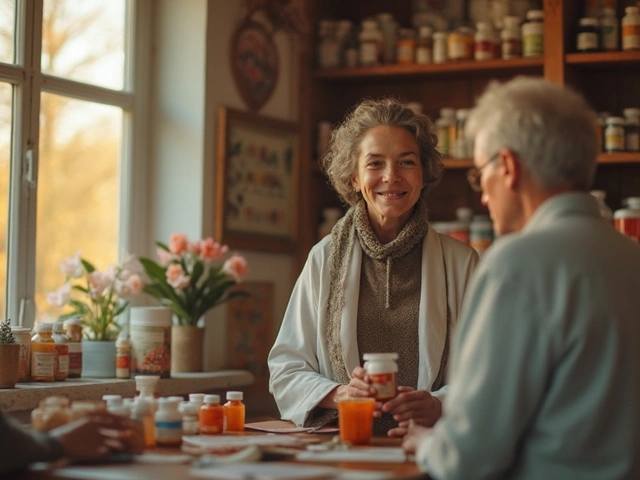
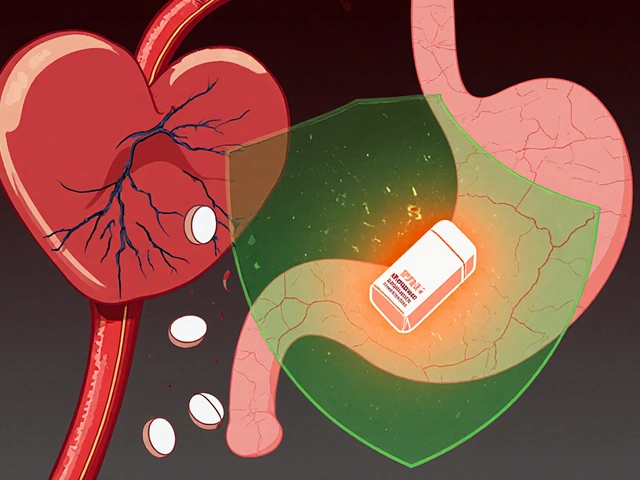
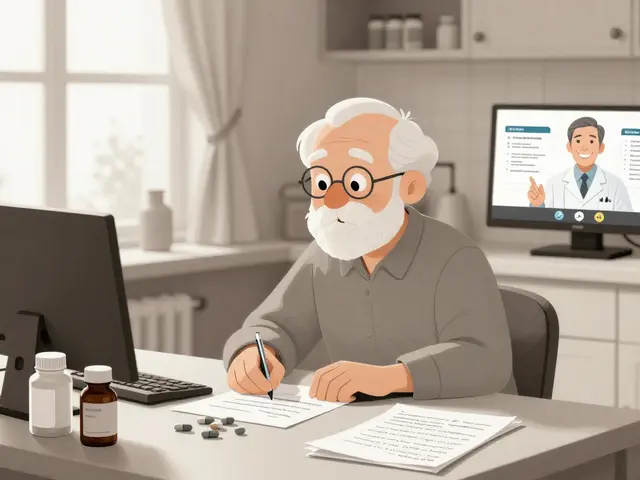

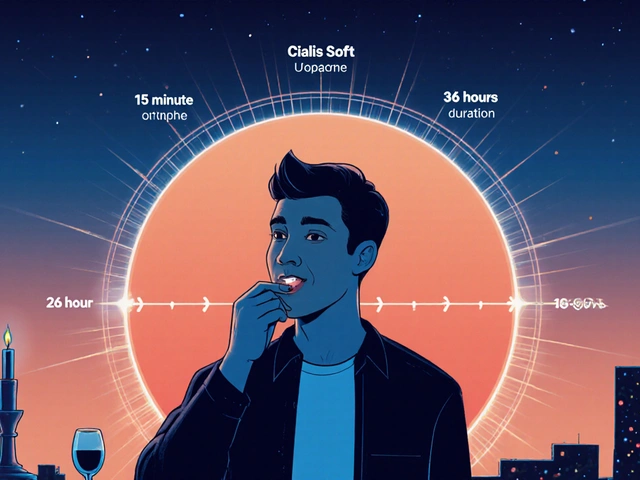
Write a comment